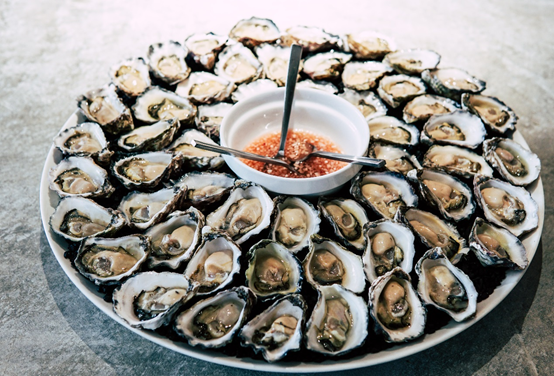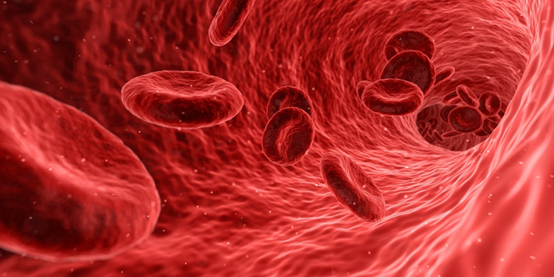
Zinc is an essential nutrient, which means that your body is unable produce or store it.
For this reason, you must get a constant supply through your diet or supplements.
Zinc is required for numerous processes in your body, including1:
· Gene expression
· Enzymatic reactions
· Immune function
· Protein synthesis
· DNA synthesis
· Wound healing
· Growth and development
Zinc is naturally found in a wide variety of both plants and proteins.
· Meat.
· Shellfish.
· Legumes, chickpeas, lentils and beans.
· Seeds.
· Nuts.
· Dairy.
· Eggs.
· Whole Grains.
· Vegetables, potatoes, both regular and sweet varieties. Green beans and kale contain also contain a small amount of zinc.
· Dark Chocolate
Zinc's role in your body
Zinc is a vital mineral that your body uses in countless ways. In fact, zinc functions in more reactions than any other mineral. Zinc is the second-most-abundant trace mineral in your body (after iron) and is present in every cell2. Zinc is necessary for the activity of over 300 enzymes that aid in metabolism, digestion, nerve function and many other processes3.
Additionally, it is critical for the development and function of immune cells4.
Zinc is also fundamental to skin health, DNA synthesis and protein production5.
Body growth and development relies on zinc because of its crucial role in cell growth and division6.
Zinc is needed for your senses of taste and smell. This is because one of the enzymes crucial for proper taste and smell is dependent on this nutrient, a zinc deficiency can reduce your ability to taste or smell7.
Each Sunbio Collagen Peptides Beauty sachet contains 4875 mgs of Premium quality Australian derived Collagen Peptides, 100 mg of Vitamin C (Ascorbic Acid), 1200 mg of eqiv. Vitis vinifera extract and 2150 mcg of equiv. zinc
Research shows that zinc has numerous health benefits.

1. Boosts Your Immune System
Zinc helps keep the body's immune system strong. This is because zinc is necessary for immune cell function and cell signaling, a zinc deficiency can lead to a weakened immune response. Zinc supplements stimulate particular immune cells and reduce oxidative stress.
A review of 7 scientific studies demonstrated that 80–92 mg per day of zinc may reduce the length of the common cold by up to a 33%8.
Additionally, zinc supplements have to scientifically shown to significantly reduce the risk of infections and promote immune response in older adults9.
2. Accelerates Wound Healing
Zinc is commonly used in hospitals as a treatment for burns, certain types of ulcers and other skin injuries10. Because zinc critical roles in collagen synthesis, immune function and inflammatory response, it is necessary for proper healing.
Interestingly, your skin holds a relatively high amount (about 5%) of your body's zinc content11.
While a zinc deficiency can slow wound healing, supplementing with zinc can speed recovery in people with wounds. In a 12-week scientific study in 60 people with diabetic foot ulcers, those treated with 200 mg of zinc per day experienced significant reductions in ulcer size compared to a placebo group12.
3. May Reduce the Risk of Certain Age-Related Diseases

Zinc may significantly reduce your risk of age-related diseases, such as pneumonia, infection and age-related macular degeneration (AMD) which causes loss in the centre of the field of vision. In a large study in over 4,200 people, taking daily antioxidant supplements — vitamin E, vitamin C and beta-carotene — plus 80 mg of zinc decreased vision loss and significantly reduced the risk of advanced AMD13.
It is believed that Zinc can relieve oxidative stress and improve immune response by boosting the activity of T-cells and natural killer cells, which help protect your body from infection14.
Older adults who supplement with zinc experience showed improved influenza vaccination response, reduced risk of pneumonia and boosted mental performance15. One study determined that 45 mg per day of zinc may decrease infection rates in older adults by nearly 66%16.
4. May Help Treat Acne

Acne is a common skin condition that occurs when hair follicles plug with oil and dead skin cells, it is estimated to affect up to 9.4% of the global population. Acne is driven by obstruction of oil-producing glands, bacteria and inflammation17.
Scientific studies suggest that both topical and oral zinc treatments can effectively treat acne by reducing inflammation, inhibiting the growth of the bacteria that causes acne and suppressing oily gland activity18. People with acne tend to have lower levels of zinc. Therefore, supplements can help reduce these symptoms19.
5. Decreases Inflammation
Zinc is proven to decreases oxidative stress and reduce levels of certain inflammatory proteins in your body20. Oxidative stress leads to chronic inflammation, a contributing factor in a wide array of chronic illnesses, such as heart disease, cancer and mental decline21.
In a scientific study with 40 older adults, those who took 45 mg of zinc per day experienced greater reductions in inflammatory markers than the placebo group22.

Scientific Evidence
1. https://ods.od.nih.gov/factsheets/%20Zinc-HealthProfessional/
2. https://www.ncbi.nlm.nih.gov/pmc/articles/PMC3775249/
3. https://www.ncbi.nlm.nih.gov/pubmed/24506795
4. https://www.ncbi.nlm.nih.gov/pmc/articles/PMC2277319/
5. https://www.ncbi.nlm.nih.gov/pubmed/23914218
6. https://www.ncbi.nlm.nih.gov/pmc/articles/PMC5872795/
7. https://www.ncbi.nlm.nih.gov/pmc/articles/PMC4042409/
8. https://www.ncbi.nlm.nih.gov/pubmed/28515951
9. https://www.ncbi.nlm.nih.gov/pmc/articles/PMC2702361/
10. https://www.ncbi.nlm.nih.gov/pmc/articles/PMC4413488/
11. https://www.ncbi.nlm.nih.gov/pmc/articles/PMC5793244/
12. https://www.ncbi.nlm.nih.gov/pubmed/28395131
13. https://www.ncbi.nlm.nih.gov/pubmed/23644932
14. https://www.ncbi.nlm.nih.gov/pmc/articles/PMC2702361/
15. https://www.ncbi.nlm.nih.gov/pubmed/18341424
16. https://www.ncbi.nlm.nih.gov/pmc/articles/PMC3649098/
17. https://www.ncbi.nlm.nih.gov/pubmed/25597339
18. https://www.ncbi.nlm.nih.gov/pubmed/20510767
19. https://www.ncbi.nlm.nih.gov/pmc/articles/PMC4135093/
20. https://www.ncbi.nlm.nih.gov/books/NBK6288/
21. https://www.ncbi.nlm.nih.gov/books/NBK6288/
22. https://www.ncbi.nlm.nih.gov/pmc/articles/PMC2869512/
上一篇:How to Stop Throwing Up After Drinking Alcohol
下一篇:没有了!

 中文
中文